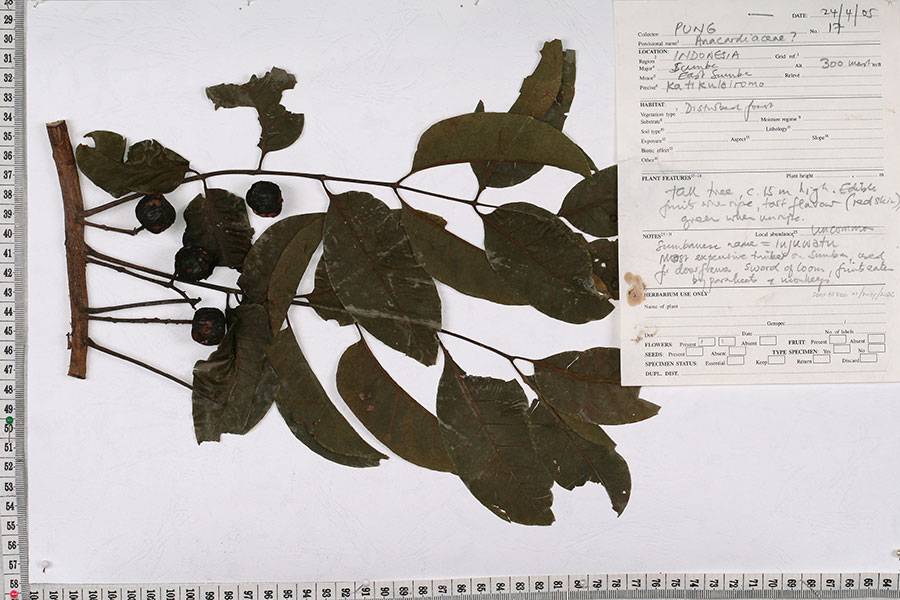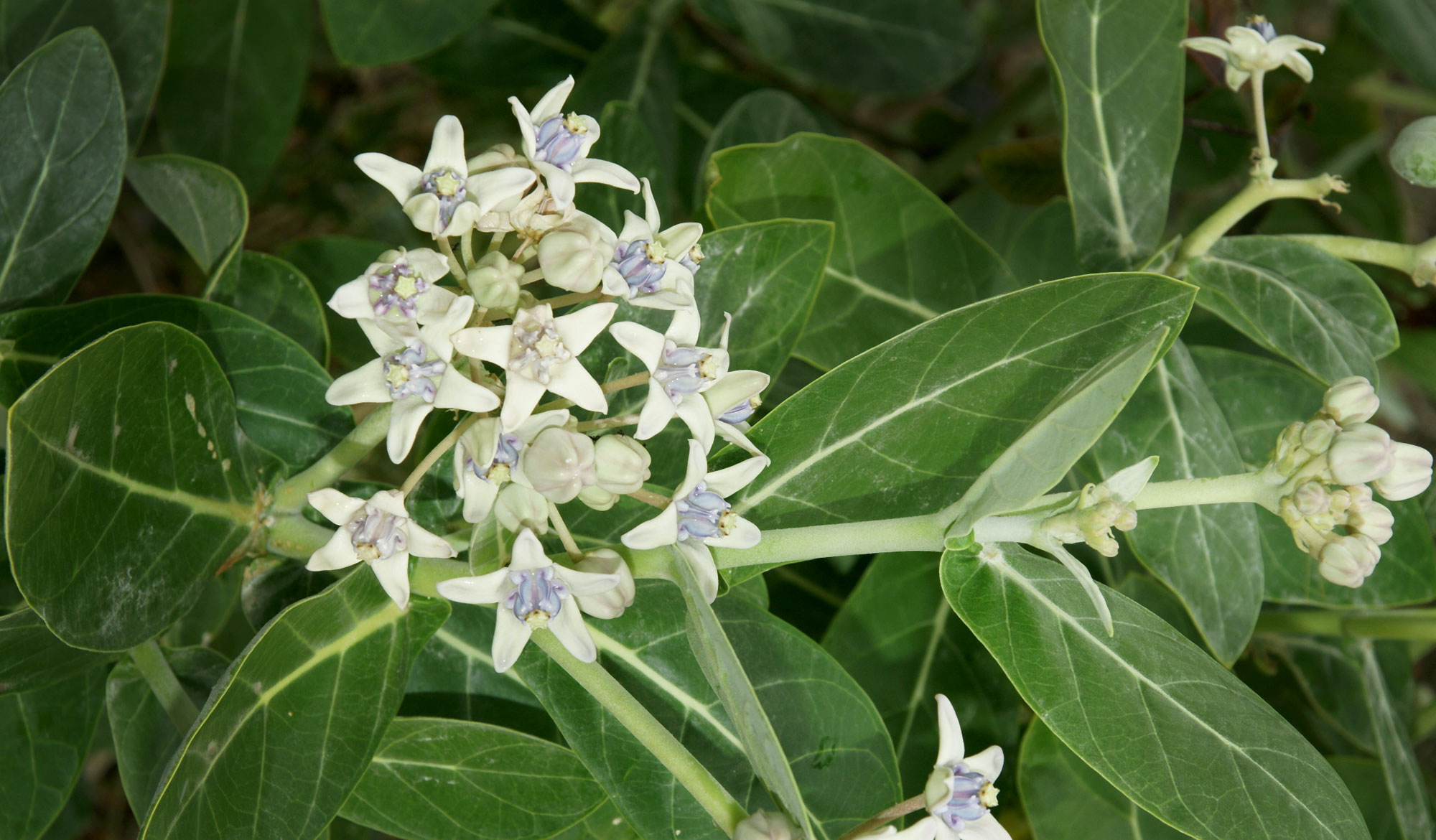IMM 017
Specimen
Pleiogynium timorense
No local names given
No english names given
No indonesian names given
Accepted

No gallery images given
Hanggaroru, Rindi, Sumba Timur, Sumba
The community forest of Rindi called Katikularoma
Not given
Tree
Lowland forest
Forest agriculture
Heavily disturbed
Rare
15 meters
300 meters
Rocky
Gentle (2-10¡)
Full sun
Not given
Seasonally Dry
Limestone
Injuwatu is found in the kampung of Ngiara Palulu, Katikulairomo adat forest. Disturbed forest. Drainage: seasonally dry. Soil: alkaline.
Injuwatu tumbu di kampung Ngiara Palulu, di hutan adat Katikulairomo.
Fruits edible when ripe, tart flavour (red skin), green when unripe.
Buahnya bisa makan kalau sudah masak. Rasa asam. Warna merah kalau sudah masak, hijau kalau masih mudah
Fruits eaten by parakeets and monkeys.
Buah di makan oleh burung dan monyet
No english notes given
No indonesian notes given
Plant/specimen uses now includes materials from the CDB. Does this connection make sense?
The uses section lists what this specimen is used for in the cultural group(s) where the specimen was collected.
No uses given
Motif information is coming from CDB. Clicking on the image will take the user to the CDB motif show page in new tab. NOTE: the motif has to already exist in the CDB.
The motifs section lists the motifs, from the cultural group(s) where the specimen was collected, that represent this specimen.
No motifs given
To see all the data about the determination, click the arrow at the end of the row.
Determination Date
Family
Genus
Species
No date given
No family given
No genus given
No species given
Tony Cunningham
Tony Cunningham
24 Apr 2006
No record that determination has been received.
No indonesian notes given
01 Aug 2013
Anacardiaceae
Pleiogynium
timoriense (DC) Leenh.
RBG - Kew
Rogier de Kok
01 Aug 2011
No english notes given
No indonesian notes given
Drawer 1
Good
